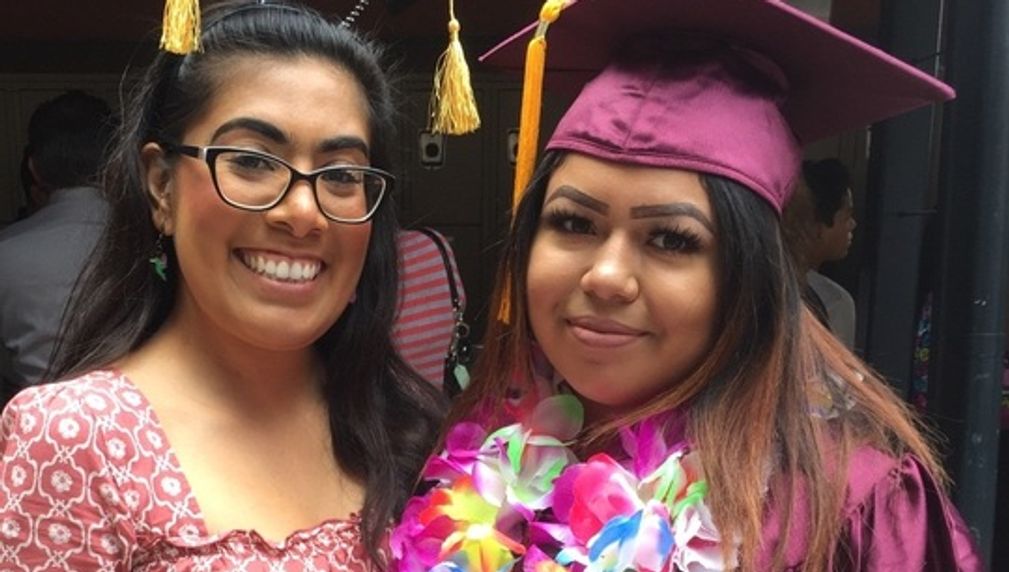#collegesquad: Promesa Boyle Heights Peer Mentor Program
We will create a peer mentorship program aimed at increasing college access in Boyle Heights, where college students mentor high school students, who in turn mentor middle school students.

Are any other organizations collaborating on this proposal?
Mendez High School, Roosevelt High School, Hollenbeck Middle School
Please describe your project proposal.
To increase college access among Boyle Heights youth, we will create a peer mentoring program, in which local college students would mentor college bound, but first generation high students at two key schools, Felicitas and Gonzalo Mendez High School and Roosevelt High School, giving them support as they prepare to apply to college. In turn, those high school mentors, will mentor at risk middle school students at risk of not graduating, to increase their motivation towards school.
Which of the LEARN metrics will your proposal impact?
College matriculation rates
District-wide graduation rates
Student education pipeline
Youth unemployment and underemployment
In what areas of Los Angeles will you be directly working?
East LA
Describe in greater detail how your proposal will make LA the best place to LEARN?
PBH implementation began in 2012 through a Community-School (C-S) model at Mendez HS, including case management for highest-risk juniors and seniors; school-wide supports to build a college-going culture; and leadership development. PBH expansion includes 1) C-S strategies at Roosevelt HS & Hollenbeck MS; and 2) targeted community wellness strategies.
Next, PBH will launch a unique peer mentorship program that bridges middle school, high school, and college students by providing at-risk and high-performing students with opportunities to support and learn from one another along the education continuum. It will be structured as follows:
A cohort of 20 students at Hollenbeck MS who are at the highest-risk for dropping out of school will receive 1:1 mentorship by a higher-performing HS student from Mendez or Roosevelt. Their HS mentor will provide them with peer support and motivation.
Those same higher-performing HS students (20 total) – many of whom are good candidates for college but lack the resources and social capital to feel confident in applying – would gain confidence by providing personal and professional development to high-risk middle school students.
The 20 High School students in this mentoring cohort would also be mentored by 10 college students who share a similar journey and background and would support them in applying for college. College students would mentor the high school students at a ratio of 1:2. Potential partners for this project are USC, Cal State LA, UCLA, Occidental College, and Loyola Marymount University, where we have current relationships.
Youth first identified peer mentorship as a key PBH strategy in the PBH planning in 2010 and the LA2050 project strategy was defined by youth. Concurrently, high-performing students at Mendez High School and Roosevelt High School expressed a desire to develop their personal leadership skills and also mentor younger students in the community who are facing the same academic challenges they once faced. In April 2016 focus groups students shared: “I like that we would be mentored by high school students, because they can give you their perspective, since they were just there. When you talk to adults, they don’t know how it is now.” --HMS 8th grader. “The program is a win win. You get to help someone, while also helping yourself by building your extracurricular activities for college, and you get helped yourself!” --MHS 12th grader. Additionally, high school and middle school students participating in the program will work as a cohort to design school wide initiatives they will lead on their campus to raise college awareness, offering opportunities for both leadership development and a wider project scope.
Please explain how you will define and measure success for your project.
Success will be defined by both immediate and long term outcomes. To gauge short term success, we will distribute surveys school wide on our two high school and one middle school campus before starting the program to gauge college awareness. Surveys will be distributed after the program has been completed and data will be analyzed to note for statistically significant increases in awareness. For our target cohort of the 40 high school and middle school students, they will complete pre, mid, and post surveys that focus on college awareness, college attainment, self esteem, and hope for their future. Additionally, post program focus groups will be completed for all cohorts: college, high school, and middle school. For long term success, we will analyze school wide data obtained from our schools. We already have baseline data from previous school years from the three target schools on attendance, behavior, graduation rates, course performance, and college enrollment. We will use this data to gauge the school wide impact on our program’s presentations and school wide initiatives. In addition to the school baseline data we have, there is a documented need for this type of programming in Boyle Heights. Boyle Heights’ 69% dropout rate underlines this predominantly Latino community’s high-need. And although the C-S model at Mendez has helped double the graduation rate in the last four years, local youth continue to face many barriers to graduation and college success.
How can the LA2050 community and other stakeholders help your proposal succeed?
Money
Advisors/board members
Publicity/awareness
Infrastructure (building/space/vehicles etc.)
Education/training
Technical infrastructure (computers etc.)
Community outreach
Network/relationship support
Quality improvement research